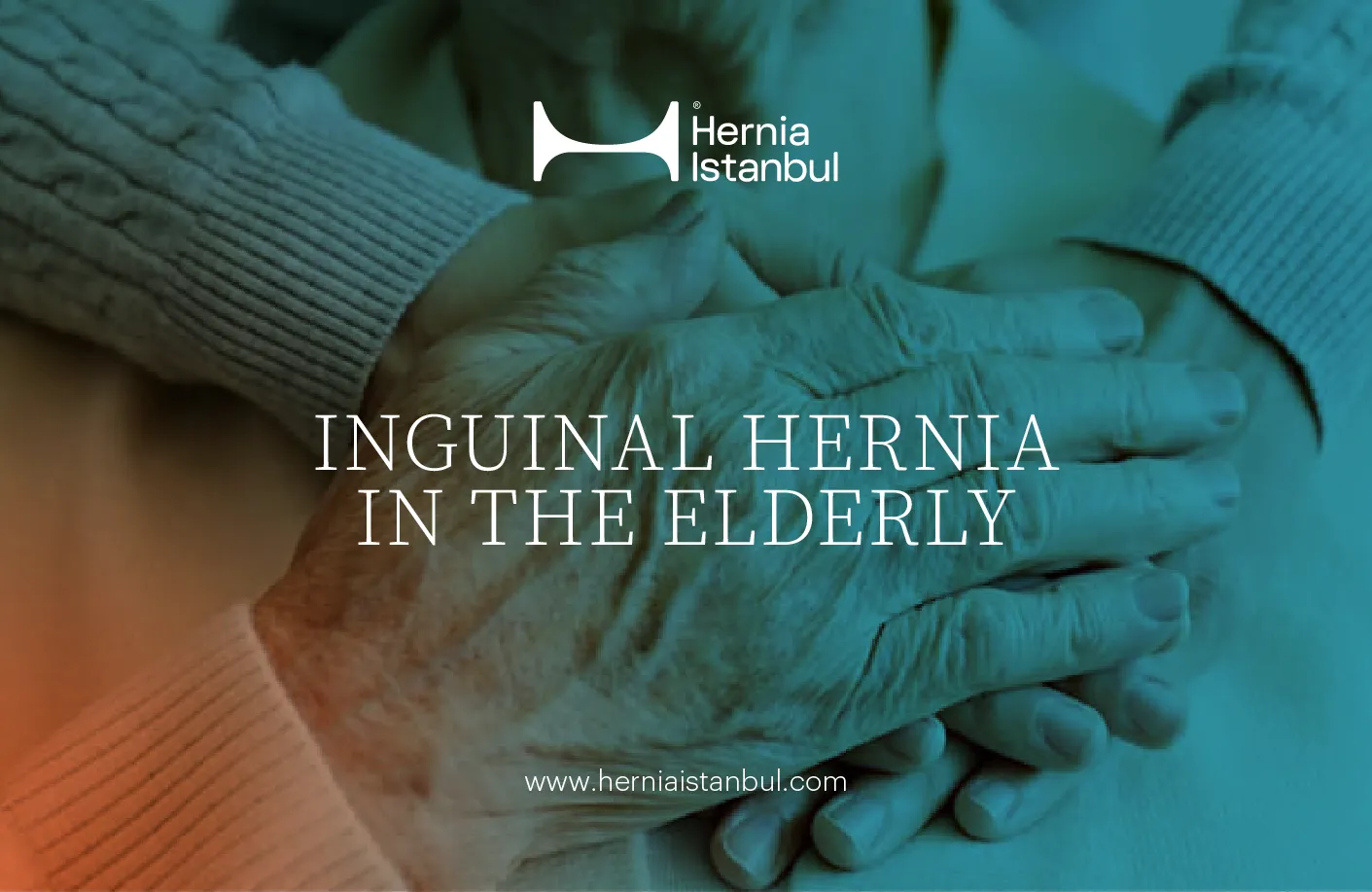
24 Jun 2023 Inguinal Hernia in the Elderly
Inguinal hernia is significant in the elderly and should never be neglected. In this age group, emergency inguinal hernia surgeries, usually due to hernia incarceration, carry a high risk of complications and mortality.
According to the classification of the World Health Organization, an individual is considered young until the age of 44. The age range of 45-60 is considered middle-aged, 60-74 is considered elderly, and those above 75 are classified as advanced elderly or even referred to as survivors above 90 years old. Generally, if there is no systemic disease, middle-aged individuals respond to surgical interventions similar to young patients. Aging is a physiological process that is accompanied by vascular aging. Additionally, conditions such as diabetes, rheumatic diseases, and cancer are frequently observed in the elderly. Based on these factors, the approach to inguinal hernias in the elderly also exhibits specific characteristics.
Firstly, I would like to mention the concept of observation and follow-up in hernia patients. When a diagnosis of inguinal hernia is made, we do not immediately recommend surgery. We propose surgery at an appropriate time without undue delay. Scientific studies have shown that among patients who choose to wait, 30% undergo surgery within 3 years and 75% within 10 years due to the discomfort caused by hernia-related pain and enlargement. Hernias tend to enlarge over time and can cause pain. Incarceration is not as common as one might think, except in newborns. In children, inguinal hernias should be surgically treated early due to this risk. When should adults undergo surgery? Not after waiting for years, of course! To read my blog post on this topic, click here!
Additional health issues in the elderly can increase the risks of surgery. For example, chronic lung diseases, heart diseases, bypass surgery, coronary stents, chronic kidney diseases, diabetes, smoking, and obesity, among others. In addition to these risks, an emergency procedure can multiply the complications and potentially life-threatening risks. Anesthesiologists categorize patients using the ASA classification (American Society of Anesthesiologists). ASA I represents a healthy individual, ASA II indicates mild systemic diseases such as diabetes or hypertension that are under control, ASA III refers to advanced and uncontrolled systemic diseases, ASA IV indicates life-threatening systemic diseases, and ASA V is reserved for patients whose survival is not expected without surgery. As the ASA score increases, the risk of complications and death also increases.
In light of this information, planned and prepared hernia surgeries can be performed with low risk and successful outcomes in the elderly. In addition to preoperative preparation, robotic or laparoscopic surgery offers the advantages of minimal surgical trauma and prompt recovery, promising successful hernia repair.
Our approach to inguinal hernias in the elderly does not differ from that for young individuals. Our priority is robotic and laparoscopic repair. These are exceptional methods, offering advantages such as low pain and rapid healing, particularly in the repair of bilateral inguinal hernias. Both sides can be repaired through three small incisions.
After a detailed examination of both groins, we always perform dynamic ultrasound on both sides. Adequate patient preparation is essential. We inquire about the patient’s systemic diseases and, if necessary, determine the situation through appropriate consultations. In cases where general anesthesia poses a high risk or in certain special circumstances (e.g., patients who have previously undergone laparoscopic inguinal hernia surgery and had a recurrence, patient preference), we perform open repair under local anesthesia.
It should be remembered that hernias are not frequently strangulated. Hernia surgery is a procedure aimed at improving the quality of life. The swelling, enlargement, discomfort, and pain caused by a hernia are all factors that diminish the quality of life. The risk of the entrapped organ, usually the intestine, becoming strangulated should never be ignored, even though it is minimal! Early hernia surgery is comfortable for both the patient and the surgeon!